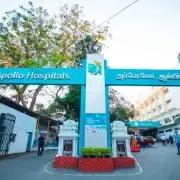Travel and Accommodation Tips for Medical Treatment Abroad
In This Article
Travel and Accommodation Tips for Medical Treatment Abroad
Parvathy
Updated on October 01, 2024
Medically verified by Dr. Arya
Fact checked by Dr. Fazeela

Medical Travel
10 mints
Traveling abroad for medical treatment can seem challenging, but with some simple planning, it can be much easier.
From booking your travel and finding the right accommodation to getting ready for your procedure, each step is important for a smooth journey.
In this blog, Karetrip will cover the basics to help you prepare and make your medical trip stress-free.
Understanding the Process of Medical Travel
Medical travel, often referred to as medical tourism, involves traveling to a different country to receive medical treatment.
This practice has gained popularity due to advancements in global healthcare, the availability of specialized treatments, and the potential for cost savings. However, it requires careful consideration and meticulous planning.
- Choosing a Destination
The first step in preparing for medical treatment abroad is selecting the right destination. Factors to consider include the availability of specialized medical services, the quality of healthcare facilities, the reputation of medical professionals, and the overall cost of treatment.
Countries such as India, Thailand, Turkey, and Mexico are popular choices for various medical procedures due to their advanced healthcare systems and competitive pricing.
- Researching Healthcare Providers
Thorough research is essential when selecting a healthcare provider. Look for hospitals or clinics with accreditation from reputable international organizations such as the Joint Commission International (JCI) or the International Organization for Standardization (ISO).
Additionally, consider reading patient reviews, seeking recommendations from healthcare professionals, and evaluating the qualifications and experience of the medical team.
Travel Arrangements for Medical Treatment
Traveling for medical treatment involves several logistical considerations. Here are some key aspects to make note of
- Visa and Travel Documents
Depending on your destination, you may need a visa to enter the country for medical treatment. Check the visa requirements and apply well in advance to avoid any last-minute issues.
Ensure that your passport is valid for at least six months beyond your planned stay. Some countries may require specific medical visas or documentation from your healthcare provider.
- Medical Travel Insurance
Medical travel insurance is a crucial aspect of preparing for medical treatment abroad. It provides coverage for unexpected medical expenses, trip cancellations, and other travel-related issues.
Choose a policy that includes coverage for medical emergencies, repatriation, and any specific needs related to your treatment. Verify the policy details with your insurance provider to ensure comprehensive coverage.
- Transportation and Accessibility
Plan your transportation arrangements to and from the medical facility. Consider factors such as proximity to the hospital, availability of public transportation, and ease of access.
Arrange airport transfers if necessary and ensure that you have reliable transportation options for follow-up appointments and other travel needs.
- Health and Safety Precautions
Before traveling, consult your healthcare provider about any specific health precautions or vaccinations required for your destination. It’s essential to be aware of any potential health risks or diseases prevalent in the region. Carry a sufficient supply of any necessary medications and ensure they are stored properly during travel.
 10 min Read
10 min ReadBooking Budget Friendly Accommodation Near Apollo Hospital, Greams Road
 10 min read
10 min readWhere can I exchange Bangladeshi Taka To Indian Rupees?
 10 min read
10 min readUnique Bangalore: Unusual & Intriguing Places to Explore While Staying In The City For Treatment
Get a Callback Now
Accommodation Options for Medical Travelers
- Hotels and Medical Tourism Packages
Many hospitals and medical centers offer medical tourism packages that include accommodation options. These packages often include amenities such as transportation, meals, and assistance with medical appointments. Booking through the medical facility can provide added convenience and ensure that your accommodation is close to the hospital.
- Short-Term Rentals
Short-term rentals, such as serviced apartments or vacation rentals, can offer a more home-like environment during your stay. These options provide additional space and amenities, such as kitchens and laundry facilities, which can be beneficial for extended stays. Websites like Airbnb and Vrbo offer a range of options to suit different preferences and budgets.
- Hotels Near Medical Facilities
If you prefer staying in a hotel, choose one located near the medical facility. Proximity to the hospital can reduce travel time and stress, especially if you have multiple appointments or require frequent follow-up visits. Many hotels cater specifically to medical travelers and offer amenities such as transportation services and special rates.
- Extended-Stay Hotels
Extended-stay hotels provide accommodations for longer durations and often include kitchenettes, laundry facilities, and other amenities that can enhance your comfort. These hotels are ideal for patients and their companions who need a more extended stay and prefer a homely environment.
Preparing for Medical Treatment Abroad
Proper preparation is key to ensuring a successful medical experience abroad. Here are some essential steps to take before you travel.
- Consultation with Healthcare Providers
Schedule a consultation with your healthcare provider to discuss your treatment plan and any necessary preparations. Obtain a detailed medical report, including your diagnosis, treatment plan, and any specific instructions. Share this information with your foreign healthcare provider to ensure a smooth transition and continuity of care.
- Health Records and Documentation
Gather and organize all relevant health records, including medical history, test results, and imaging studies. Ensure that these documents are translated into the language of your destination if necessary. Carry both physical copies and digital copies for easy access.
- Communication with Medical Facility
Establish clear communication with the medical facility abroad. Confirm your appointment dates, treatment plan, and any specific instructions. Inquire about the availability of translators or interpreters if you do not speak the local language. Establish a point of contact for any questions or concerns during your stay.
- Financial Planning
Prepare for the financial aspects of your medical treatment abroad. Obtain a detailed estimate of the treatment costs, including any additional expenses such as medications, follow-up care, and accommodation. Arrange for payment methods and consider carrying some local currency for convenience.
- Support System and Travel Companions
Having a support system in place can make your medical journey more manageable. If possible, travel with a trusted companion who can assist you with daily activities, transportation, and communication. Inform your family and friends about your travel plans and provide them with emergency contact information.
- Cultural and Legal Considerations
Familiarize yourself with the cultural norms and legal requirements of your destination. Understanding local customs, etiquette, and regulations can enhance your experience and ensure that you adhere to local practices. Research local emergency services and healthcare resources in case of any unforeseen issues.
Managing Post-Treatment Recovery
Once your treatment is complete, proper post-treatment care is essential for a successful recovery. Here are some tips for managing your recovery.
- Follow-Up Appointments
Schedule any necessary follow-up appointments with your healthcare provider abroad. Ensure that you have a clear understanding of the follow-up care required and any additional treatments or tests needed. Maintain open communication with your healthcare provider to address any concerns or complications.
- Rest and Rehabilitation
Allow yourself adequate time to rest and recover after your treatment. Follow any post-treatment instructions provided by your healthcare provider and adhere to recommended rehabilitation exercises or therapies. Take care of your physical and emotional well-being during this period.
- Return Travel and Medical Records
Plan your return travel carefully, ensuring that you have all necessary medical records and documentation with you. Keep a copy of your medical report and any relevant test results for your primary care physician upon returning home. This information will be valuable for continuity of care and follow-up treatment.
- Monitor Your Health
Continue to monitor your health and report any unusual symptoms or concerns to your primary care physician. Regular check-ups and communication with your healthcare provider are crucial for managing your recovery and ensuring long-term success.
The information provided represents the views and opinions of Karetrip. It is crucial to conduct your own independent research before making any decisions regarding your healthcare journey.
Traveling abroad for medical treatment involves a complex process of planning and preparation.
By addressing travel arrangements, accommodation options, and essential preparations, you can navigate this journey with greater ease and confidence.
Whether you are seeking specialized treatment, cost-effective care, or a higher standard of medical services, careful planning will help ensure a successful and smooth experience.
Remember to conduct thorough research, consult with healthcare providers, and plan for all aspects of your trip, including travel documents, insurance, accommodation, and post-treatment care.
With the right preparation, your medical journey abroad can be a positive and transformative experience, leading to improved health and well-being.

